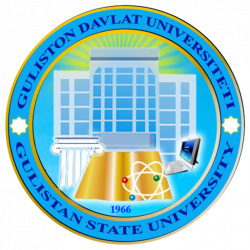The PRINCIPLES OF THE HIGHER EDUCATIONAL INSTITUTION
Entrance
"Only a truly educated man can fight with dedication for
human and national values, in a word,
for self-consciousness, living in a free society,
identification of our independent state
in the world community. "
The Rules of Conduct (after referred as the "Ethics Code") is governed by the Constitution of the Republic of Uzbekistan, the National Program of Personnel Training, the Law of Education, the Law of the Republic of Uzbekistan "On Education" “ On basics of State Youth Policy "and" On Principles and Guarantees of Freedom of Information ", the Cabinet of Ministers Resolution" On measures of regulating the using of mobile phones in educational institutions of the Republic of Uzbekistan " On Approval of the Model Law of the Cabinet of Ministers "of March 2, 2012" On Approval of standart rules of conduct of Workers of Public Administration and Local Self-Government Bodies ", dated March 2, 2016, by the Ministry of Higher and Secondary Specialized Education of the Republic of Uzbekistan decisions and orders of the University, the Charter of the University, internal procedures, and generally recognized moral and ethical principles.
Section 1. General rules:
1.1. The ethics of professors, teachers, staff, and students of this EMA consist of a combination of the basic principles and general principles of professional ethics.
1.2. The Code of Ethics is designed to prevent violations and to eliminate the causes and conditions of their conduct, to enhance the legal awareness of faculty, staff and students, the Constitution, laws and other normative and legal acts of the Republic of Uzbekistan, rights and freedoms of citizens in the spirit of strict observance.
1.3. Professors, teachers, staff and students must comply with the requirements of law and morality.
In the development of the Code of Ethics, the Republic of Uzbekistan regulates the educational legislation of the Republic of Uzbekistan on ensuring the constitutional right of citizens to education, upbringing, vocational training, and the education of everyone, effective forms and methods of spiritual and moral upbringing development and implementation, the main function of the HEI is the provision of education and training.
1.4. Adjectives will enter into force after their approval by the Academic Council of the University and the amendments and additions will be made by the decision of the Scientific Council.
1.5 "Behavior Rules" The administration, faculty, staff, and students (team members) of the HEI determine the ethical principles in their relationships with the ECM, as well as the rules of conduct and commitments that must be followed.
1.6. Enabling "admiration rules" is mandatory for all OSM team members. The procedure of compliance with these rules is monitored by the Advisory Committee established by the Higher Education Council.
1.7. Everyone admitted to a job or a job is obliged to read and obey the Code of Ethics.
1.8. The University is interested in adhering to the Guidelines in public relations, public and non-governmental organizations, educational and scientific institutions, business entities, the media, and parents of students.
Section Two. Goals and tasks:
2.1. "Admiration Rules" is designed to create a healthy spiritual and social-psychological environment, to maintain its prestige and reputation, to help train highly qualified cadres who meet high moral and ethical requirements, and to further enhance the academic standing of the university in society and in the education system.
2.2. The main objectives of "admiration rules":
- a nation with high spiritual and ethical qualities, a sense of responsibility to the society, state and family, acknowledging the internal and external policies of the state, patriotic and pro-active, entrepreneurial, entrepreneurial, armed with modern knowledge and high humanistic will, training of conscientious specialists;
Formation, storage and protection of the spiritual immunity of OSM team members;
- Preventing any behavior that is related to promoting morality among adults, including propaganda of violence, cruelty, including the youths from alcoholism and drug addiction, other destructive threats, and religious and extremist influences that are alien to us, “mass culture" attacks.
Section Three. Common rules for team morals:
3.1. At AUC, solidarity, mutual trust, respect, mutual care, and interdependence of team members
Share on social networks


.gif)


 O'zbekcha
O'zbekcha Русский
Русский English
English 中文
中文







